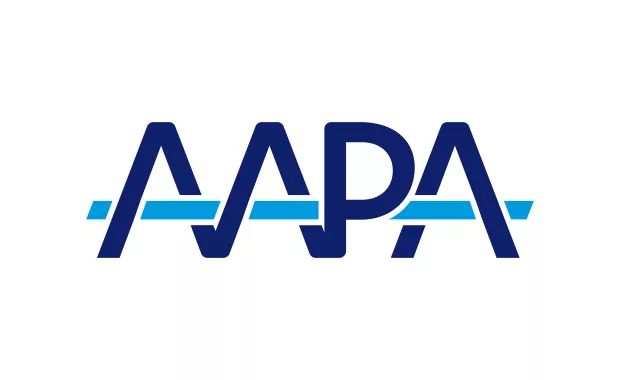Job Crafting: Make the Most of Your Current Position
Redesign your job to be more satisfying
Yale professor Dr. Amy Wrzesniewski studies sources of work satisfaction. “Job crafting” is her term for approaches that employees can use to redesign their current job to be more satisfying. We can all job craft – make small but impactful changes at work to create more meaning, more effectiveness, and better connection. Dr. Wrzesniewski’s process is concerned with transforming passive dissatisfaction into active engagement to make jobs better. “Your job comprises a set of building blocks that you can reconfigure to create more engaging and fulfilling experiences at work,” she says.
In her model, these building blocks comprise three areas or approaches to creating a better work experience. Task crafting is the process of making changes to your work activities, including scope and content; perception crafting is the process of thinking in new, positive ways about your work and its meaning; relational crafting involves making changes to your interpersonal relationships. Job crafting is especially useful for PAs who need to stay in their current positions; these PAs can use insight and ingenuity to make the most of their given work situations.
To begin the process, it helps to start with an assessment. When you reflect on your current job, what about it energizes and depletes you? Are the problems with roles or responsibilities, relationships, or morale? What are the job’s most draining and most sustaining aspects?
Task Crafting: Making Changes to What You Do
Task crafting involves finding ways to actively shape the content of your roles and responsibilities at work. For some, a positive shift might entail creating a new or expanded leadership or management role. For others, more time for patient care and a reduction of non-clinical tasks would be a task crafting improvement. Would your job be improved if you could revisit your job description and expand your scope of practice in new directions?
For PAs, delegation adds an interesting aspect to task crafting. Unlike other clinicians who tend to be locked into a more defined roles, PAs’ roles are inherently dynamic because they are formed in the context of delegation–changing and changeable over time based on team practice relationships. This makes discussion an especially crucial aspect of task crafting. Open, direct communication about what you’d like to take on or approach differently with your collaborative partners could unlock new practice horizons.
Task Crafting Questions
- What new roles and responsibilities would you like to include as part of your scope of practice?
- How will new roles and responsibilities benefit your employer? Are there ways you could streamline practice tasks?
- Does your job description or delegation agreement need an update?
Perception Crafting: Making Changes to How You Think
Perception crafting relates to the subjective dimensions of one’s work. In practice, this means examining work-related attitudes and seeking meaning and value, even in challenging circumstances. It’s easy to fall into inner monologues of dissatisfaction and frustration given the very real challenges of working in today’s often rushed, impersonal, and high-pressure medical system. Perception crafting encourages asking constructive questions about how we see our work: where does true value and meaning exist in one’s practice, despite many issues? On any given day, what are the rewards of working as a medical provider, healer, and health advocate?
Perception Crafting Questions:
- When and how do you experience meaning, connection, and fulfilment in your current work? What are some recent examples of positive impacts you’ve made for your patients?
- How are your daily efforts improving the lives of those you interact with?
- What opportunities does your job give you to express compassion and encouragement?
- In what ways do you feel valued by your colleagues, and what do you value about them?
- What aspects of patient care are sources of meaning for you?
Relationship Crafting: Making Changes to How You Work With Others
Relationship crafting is the final building block of job crafting, and involves assessing and changing – as necessary – the types and quality of workplace relationships. The quality of both collegial and patient relationships is foundational to PA job satisfaction, so this dimension of job crafting may be especially vital for PAs. While some find themselves in toxic workplaces where relationships have been poisoned by abusiveness and disrespect, many readers probably experience a workplace where relationships are imperfect but improvable. Relationship crafting offers the opportunity to strengthen and revitalize these important work relationships.
Relationship Crafting Questions
- How healthy are your current workplace relationships?
- What would enhance your connections with patients and colleagues?
- Are there interpersonal issues or challenges that need to be addressed?
- What can you do to improve communication, collegiality, trust, and respect in your workplace relationships?
- Are there new teams or projects you’d like to join to expand your circle of professional relationships?
- What aspects of your contract could you negotiate/renegotiate for a healthier employment relationship?
To delve further into the possibilities of job crafting, I suggest reading Managing Yourself: Turn the Job You Have into the Job You Want by Amy Wrzesniewski, Justin M. Berg and Jane E. Dutton
The Center for Positive Organizations offers (for a fee) a Job Crafting Exercise designed by Professor Wrzesniewski and team.
In 2018, consider job crafting to create a more fulfilling PA career.
Jennifer Anne Hohman is founder of PA Career Coach. Contact her at [email protected].
Thank you for reading AAPA’s News Central
You have 2 articles left this month. Create a free account to read more stories, or become a member for more access to exclusive benefits! Already have an account? Log in.


